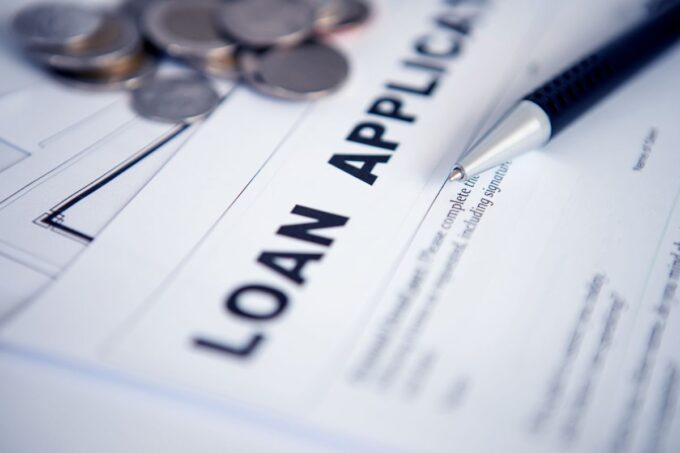No matter how meticulously you plan your finances, an emergency can arise anytime, and getting immediate funds can be difficult if you haven’t saved up for a rainy day. In such circumstances, you can get a loan to finance your emergency spending. The loan options open to you will depend on your credit score.
A credit score is a number between 300 to 850 that determines your creditworthiness and showcases your history of paying back bills and loans. Most loans will require you to have a credit score of above 600.
You should familiarize yourself with your options before deciding which loan to get.
Understanding Loans
When you seek a loan, your creditor takes a risk by giving you money,since as you may not be able to return it. Creditors mitigate this risk by asking for collateral. A collateral is an asset, like your house or car, that the lender can take ownership of to recoup their losses if you cannot pay your loan. Loans that require collateral are called secured loans. Some lenders issue unsecured loans too, but they require a higher credit score and a high interest rate.
You can repay your loan in a single cash dump or pay it in installments. An installment loan, or a term loan, has pre-determined payments for each month over several months or years.
You also need to pay interest on your principal amount. Creditors charge interest in two ways: in a fixed-rate loan, the interest rate does not change over the loan term, but in a variable-rate loan, your interest changes with your prime rate.
Generally, interest rates are essential because they can dictate borrowing costs. The lower the interest rate, the lower your monthly loan repayment.
For this reason, it’s essential to understand the interest rates associated with your loans to know whether you can afford to pay your monthly loan payments without causing financial trouble.
Types of Loans

Here are some common types of loans you can get:
1. Personal Loans
Unlike student or mortgage loans, personal loans are loans you can get for any purpose. People generally use them for large projects like home renovation or funding their dream weddings.
Personal loans are a broad category. Depending on the loan, their repayment term can vary from a few months to several years. While most personal loans do not require collateral, some lenders offer secured loans.
In that case, you must provide collateral to obtain a personal loan.
Also, it’s crucial to pay your secured personal loan on time to avoid the seizure of your collateral. If you fail to make timely repayments, the lender will more likely confiscate your collateral and use it to satisfy your loan obligation.
2. Auto Loans
Auto loans allow you to borrow the price of your desired car. The down payment, the amount you need to pay upfront to the car dealer, is generally not included in an auto loan. Most down payments are around 20% of the total car’s worth.
Auto loans are secured against your vehicle, so if you fail to repay your loan, the creditor will repossess your vehicle. Creditors generally offer auto loans for 36 months to 72 years. Your interest rate will depend upon your credit history, but it’s usually low due to the secured nature of the loan.
3. Student Loans
Student loans help you pay for your university education. You can get a student loan from the National Student Loans Service Center or private lenders.

In case you’re borrowing from the government, you won’t require a credit check. You can also defer the payment or even get it forgiven in some instances if you cannot pay the loan back. The repayment options are based on your income so that you can repay them according to your financial situation. Federal student loans charge the same loan fees and interest rates for every borrower on the same type of loan.
Private lenders also offer student loans but without these perks. They require a credit check, and you cannot get a private student loan forgiven. Lenders also set their desired loan terms, including interest rates and repayment options. You cannot repay a private student loan according to your current income.
4. Payday Loans
Payday loans are short-term loans with a high-interest rate. They are one-term loans; you must repay the total amount before your next payday. While the conditions for a payday loan are stringent, they don’t require a credit check: you can get a payday loan even with a credit score of below 300.
Payday loans require little time to approve; you can get your funds within an hour, which makes them suitable for emergencies. If you need immediate funds in an emergency and your credit score is below par, payday loans can help you get the funds. In Canada, you can get these loans from My Canada Pay.
5. Mortgage Loans

You can use a mortgage loan to cover your house’s price. Like auto loans, mortgage loans do not cover your house’s down payment, which you must pay upfront when buying the home.
As homes are expensive, mortgage loans are long-term, taking one to three decades to be fully paid. The bought house is collateral – if you miss your mortgage payments, the lender can foreclose it to recoup their losses.
The interest rate on a mortgage loan is generally low – around 3 percent. You can get a fixed-rate mortgage or a variable-rate one, so clearly read the loan terms to avoid unexpected payments due to any change in the prime rate.
While banks traditionally issue mortgage loans, you can also get a mortgage from a government agency. Government mortgages are generally cheaper, with lower interest rates.
6. Credit-Builder Loans
If you have a poor credit score, you can improve it by getting a credit-builder loan. You can rebuild your credit score in several ways, from extending your credit limit to getting a tradeline. A quick and efficient method is to apply for a credit-builder loan.
The lender will put a principal amount in your bank account, which you must pay over a fixed term of around six months to two years. Because you made on-time monthly payments, your credit score will organically improve.
When this happens, you can improve your financial situation over time.
Having a good credit score can help you in various ways. For instance, it can allow you to take out loans with lower interest rates and more flexible payment terms. It can also reduce the money you pay for your insurance premiums. If you’re applying for a job, the employers will more likely check your credit, and having a good one will increase your chances of getting hired.
With all that said, having a good credit score is crucial, and one way to achieve it is to take out a credit-builder loan. Make sure to pay your monthly payment on time to establish your credibility as a borrower. On the other hand, there are also different ways to improve your credit score. To learn more about building credit, you may visit reliable resource websites to get more information.
7. Debt Consolidation Loans
If you have several debts to pay, keeping track of every loan repayment can be challenging, increasing the chance of missing a payment. Consider getting a debt consolidation debt, which combines all your debt repayments into one loan.
With a debt consolidation loan, you only have to pay once the entire month instead of making several monthly repayments. Consolidating your debt also helps you save money as its interest rate is lower than the combined interest rate of your existing loans.
8. Secured loans
Secured loans, also known as collateral loans, are a type of financial agreement where the borrower pledges an asset as collateral to secure the loan. These assets could be a property, vehicle, investments, or any valuable asset owned by the borrower. The collateral serves as a form of security for the lender, granting them the right to take possession of the asset if the borrower defaults on their repayments.
As secured loans are less risky for the lender, they often come with lower interest rates and longer repayment periods compared to unsecured loans. They provide a viable option for individuals or businesses seeking substantial funding or those with less-than-ideal credit ratings. However, the potential downside is the risk of losing the pledged asset in case of default. secured loans are typically utilized for significant financial requirements such as purchasing a home (mortgage), buying a car (auto loan), or starting a business.
The exact terms of the loan, including the interest rate and repayment period, are outlined in a loan agreement, which both the lender and the borrower must agree to and sign. This binding contract enforces the borrower’s obligation to repay the loan under the given terms and conditions.
Endnote

Finding money at a difficult time when you urgently need it can be difficult. While friends and family may help you to some extent, some emergencies, like a hefty medical debt, might require more funds than they can manage. You can finance your expenses by getting a loan.
You can get a secured loan, which requires collateral, and an unsecured loan, which has higher interest rates. When getting a loan, ensure you have a repayment plan to avoid getting into a vicious cycle of debt where you borrow money to pay off your previous loans. Always research your lender thoroughly and ensure they are trustworthy and legitimate.










